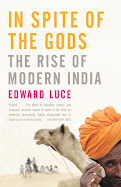RESOURCE NATIONALISM;
A NEW DIRECTION.. OR ANOTHER FORM OF PRIVATIZATION?
"Four centuries ago, as the conquistadors roamed through South America, it was the search for gold that drove the clash of empires. A hundred years later, as the great powers fought over the West Indies, it was the quest for land that could gro sugarcane. Today, the key commodity is oil"- Adam Hochschild, author of King Leopold's Ghost
I will review :
Introduction:
On January 2 , 2008, the price of oil hit $100 a barrel after flirting with that milestone high for months in the previous year. Today, October 12 2009 at 11:30am EST, the price of oil is $73.30 a barrel. It has been a painfully slow decline for American commuters and travelers alike, a period that brought about new vocabulary such as the 'staycation". While the price has indeed fallen, oil consumers worldwide should not be lulled into a sense of comfort- the decline is temporary and price hikes will be the norm. Current geopolitical affairs are characterized by battles between the major powers over this ever dissipating non-renewable resource. Klare's admonition is stark, and appropriate - the world must cooperatively reduce its consumption of non-renewable resources and redirect the balance of world power to a more productive political goal, or battles will escalate into wars, in which all eventually be losers.
America is addicted to oil, and the rest of the world is to varying degrees, just as physically dependent on oil and other natural resources. These resources are necessary to sustain what Michael Klare calls “the international sinews of the global economy; planes, trains, trucks & ships that carry goods and people from one region to another". Developed world powers continue to rely on the same energy sources they discovered decades ago, while rising powers demand vast amounts of energy from old and new sources across the world. Add to these factors the proven diminishing supply of resources in most of the world’s reserves, and an exponential equation is formed. The solution is the fastidious and equitable management of the current and future supplies of energy and a truly collective effort towards developing alternative and renewable sources of energy. It may take several pages worth of calculations to arrive at this solution, depending on who is doing the math.
This begs the question, who should manage the energy? Klare brings up the trend of resource nationalism, describing it as “the management of energy flows in accordance with vital state interests” (23). State management of energy could indeed prove to be the better choice for energy administration as compared to the private industry; however, the government may not be a perfect fit, as some questions beg to be asked. Supported by Michael Klare, we can attempt to determine the challenges that resource nationalism would face and hopefully identify potential candidates for this form of energy management.
Despite the proliferation of democracy across borders through globalization, there remain some countries which have yet to adopt more egalitarian principles. So what are the implications of state-governed energy if the government came to power in less than democratic methods?
A government that does not prescribe to democratic or at least egalitarian practices likely does not value the rights of its citizens, and can be expected to follow up on previously used unjust methods to secure a nation’s profits for select elite. Such is the unfortunate demise of many third-world countries whose governments are riddled with corruption and whose officials are unchallenged by the masses due to the threat of incarceration, and even death. The severity of the crisis in America’s financial sector that has led to a nation-wide recession can partly be ascribed to the extent to which international finance powerhouses roamed Wall Street untamed. To the same effect, governments in control of a nation’s energy resources could bloat with power and rule unchecked, especially if power-hogging is the norm.
American investors, with all the unlimited knowledge and democratic freedoms, still found themselves helpless at the discovery of cooked books and deceivingly profitable instruments. The lesson to be gleaned from this is that an entity of power, whether private or public, must be checked and balanced in some way by its people- those who are the basis for the entity’s operation. Resource naturalism would not be a good fit for a non-democratic society, even if that society appears to be functioning sufficiently. The true test of a sufficient society is its ability to resolve issues when they arise, and the extent of resolution is reduced when the majority of the people are powerless.
More on Michael Klare
TBC..








No comments:
Post a Comment